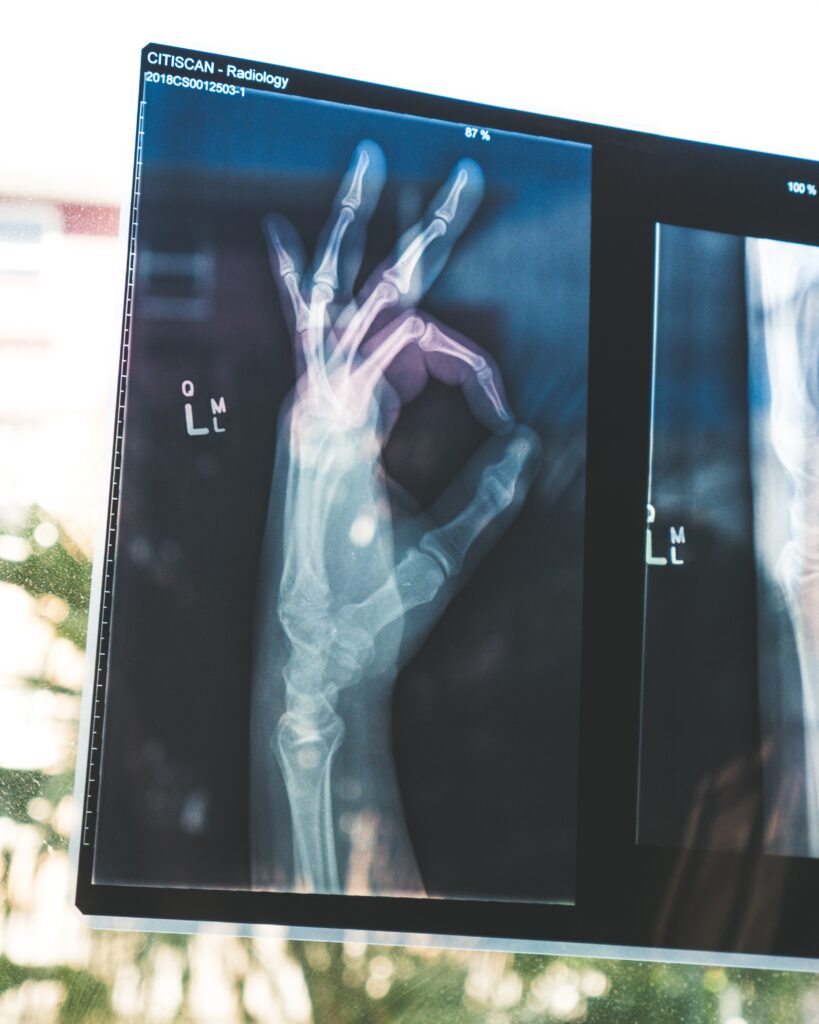Imagine you’re standing in the supplement aisle, staring at a bottle of vitamins. Thoughts flood your mind – is it possible to take too many? Can you overdose on vitamins? Well, fear not, because we’re here to shed some light on this common concern. In this article, we’ll explore the possibilities of vitamin overdose, debunking myths and providing you with the information you need to make informed decisions about your health. So get ready to separate fact from fiction and discover whether those extra vitamins are a cause for worry or a harmless addition to your wellness routine.
Understanding Vitamins and their Importance
Vitamins are essential organic compounds that play a crucial role in maintaining the overall health and well-being of our bodies. They are required in small quantities but have a significant impact on various bodily functions. These vital nutrients are necessary for growth, development, and the proper functioning of our metabolism.
Definition of Vitamins
Vitamins are micronutrients that are essential for the proper functioning of our bodies. They are organic compounds that cannot be synthesized in sufficient quantities by our bodies, so we often rely on external sources such as food and supplements to meet our vitamin needs. Each vitamin has a specific function, and a deficiency in any of these nutrients can lead to various health issues.
Different Types of Vitamins
There are 13 essential vitamins that are classified into two categories: fat-soluble vitamins and water-soluble vitamins. Fat-soluble vitamins include vitamins A, D, E, and K, which dissolve in fat and can be stored in the body for longer periods. On the other hand, water-soluble vitamins such as vitamin C and the B vitamins (thiamine, riboflavin, niacin, pantothenic acid, pyridoxine, biotin, folic acid, and cobalamin) dissolve in water and are not stored in the body, so they need to be replenished regularly.
The Role of Vitamins in the Human Body
Vitamins play a vital role in various bodily functions. They act as catalysts, enabling our bodies to carry out essential processes such as energy production, immune system function, cell growth and development, maintenance of the nervous system, and many others. Each vitamin has its own specific function, and a deficiency or excess of any vitamin can have significant impacts on our health.
Recommended Daily Intake of Vitamins
To ensure that our bodies receive an adequate supply of vitamins, it is important to understand the concept of Recommended Daily Allowance (RDA). The RDA represents the average daily intake of a specific nutrient that is sufficient to meet the nutritional requirements of the majority of healthy individuals.
Understanding the Concept of RDA
The RDA values are established by various authoritative bodies, including the National Institutes of Health (NIH) and the Food and Nutrition Board (FNB). These values are based on scientific research and take into consideration factors such as age, sex, overall health, and life stage. The RDA values aim to prevent nutrient deficiencies and promote optimal health.
RDA Values for Various Vitamins
The RDA values for vitamins can vary depending on individual factors. Generally, the RDA values for vitamins are expressed in micrograms (mcg) or milligrams (mg) and depend on age, gender, and life stage. For example, the RDA for vitamin C ranges from 15-90 mg per day, depending on age and gender. Similarly, the RDA for vitamin D varies from 400 to 800 International Units (IU) per day.
Factors Affecting the RDA of Vitamins
Several factors can affect the RDA of vitamins for individuals. These factors include age, gender, pregnancy, breastfeeding, underlying health conditions, and medication use. Pregnant and lactating women often have higher vitamin requirements to support the growth and development of the fetus and the production of breast milk. People with certain health conditions may require higher vitamin intake to meet their specific needs.

This image is property of images.unsplash.com.
Health Risks of Vitamin Deficiency
Vitamin deficiencies can have detrimental effects on our health, leading to various physical and mental health issues. It is important to identify common vitamin deficiencies and their symptoms to prevent long-term health complications.
Common Vitamin Deficiencies and Their Symptoms
The most common vitamin deficiencies include vitamin D deficiency, vitamin B12 deficiency, and iron deficiency. Vitamin D deficiency can lead to weakened bones, increased susceptibility to infections, and mood disorders. Vitamin B12 deficiency can cause fatigue, weakness, neurological problems, and anemia. Iron deficiency can result in fatigue, weakness, pale skin, shortness of breath, and impaired cognitive function.
Long-Term Effects of Vitamin Deficiencies
If left untreated, vitamin deficiencies can have severe long-term effects on our health. Vitamin D deficiency, for example, can increase the risk of bone diseases such as osteoporosis and rickets. Vitamin B12 deficiency can lead to irreversible nerve damage and neurological disorders. Iron deficiency can cause anemia, impaired cognitive function, and weakened immune system.
Prevention and Treatment of Vitamin Deficiencies
Preventing and treating vitamin deficiencies involve making necessary dietary changes and, in some cases, supplementation. Consuming a balanced diet that includes a variety of nutrient-rich foods such as fruits, vegetables, whole grains, lean proteins, and dairy products can help prevent vitamin deficiencies. In cases where dietary changes are not enough, vitamin supplements may be recommended under the guidance of healthcare professionals.
Vitamin Overdose: Is it Possible?
While vitamin deficiencies can have adverse health effects, it is equally important to understand the concept of vitamin overdose. While it is often emphasized to meet the recommended daily intake of vitamins, exceeding the safe limits can lead to potential health risks.
Concept of Vitamin Overdose
Vitamin overdose refers to the consumption of excessive amounts of vitamins, surpassing the upper tolerable limits set for each nutrient. While vitamins are essential for our health, consuming an excessive amount can lead to toxicity and adverse effects on the body.
Understanding the Upper Limits
Upper limits are values established by authoritative bodies to indicate the maximum safe intake of vitamins. These limits are set to avoid the risk of toxicity and adverse health effects. Exceeding the upper limits can lead to vitamin overdose, which can potentially harm the body.
Factors Contributing to Vitamin Overdose
Several factors can contribute to vitamin overdose. These include excessive use of supplements without proper guidance, consumption of fortified foods in excessive amounts, and inadvertent double-dosing of supplements due to lack of awareness. It is important to understand these factors to prevent vitamin overdose and maintain overall health and well-being.

This image is property of images.unsplash.com.
Symptoms of Vitamin Overdose
Recognizing the symptoms of vitamin overdose is crucial in identifying and addressing potential risks. While the signs may vary depending on the specific vitamin and the extent of excess intake, there are some common signs to be aware of.
Common Signs of Vitamin Overdose
Common signs of vitamin overdose can include nausea, vomiting, diarrhea, abdominal pain, and headaches. These symptoms may resemble those of other illnesses, making it important to pay attention to the dosage and duration of vitamin intake.
Specific Symptoms Related to Particular Vitamins
Certain vitamins can have specific symptoms associated with their overdose. For instance, an overdose of vitamin D can lead to elevated calcium levels, resulting in fatigue, kidney problems, and even damage to the heart and blood vessels. Excessive intake of vitamin A can cause dizziness, blurred vision, bone pain, and liver damage.
Relation Between Dosage and Onset of Symptoms
The onset of symptoms related to vitamin overdose can vary depending on the dosage and duration of excessive vitamin intake. In some cases, symptoms may be immediate, while in others, they may take time to manifest. It is important to be vigilant about vitamin intake and consult a healthcare professional if any concerns arise.
Health Risks of Vitamin Overdose
While vitamins are essential for our health, excessive intake can lead to short-term and long-term health risks. It is crucial to be aware of these risks and take necessary precautions to prevent vitamin overdose.
Short-Term Health Risks Involved
Short-term health risks of vitamin overdose can include nausea, vomiting, diarrhea, and other gastrointestinal issues. Excessive intake of certain vitamins can also affect the liver, kidneys, and other organs. It is important to identify and address these risks promptly to avoid further complications.
Long-Term Implications of Vitamin Overdose
Long-term vitamin overdose can have serious implications on our health. Excessive intake of certain vitamins, such as vitamin A, can lead to chronic toxicity and damage to vital organs. Vitamin E overdose has been associated with an increased risk of hemorrhagic stroke. It is essential to maintain a balanced intake of vitamins to mitigate the risk of long-term health issues.
Specific Health Risks per Vitamin Type
Each vitamin carries its own specific health risks when taken in excessive amounts. For example, excessive intake of vitamin C can lead to digestive disturbances and kidney stones. Overdosing on vitamin D can cause hypercalcemia, leading to bone pain, kidney problems, and cardiovascular issues. It is crucial to be aware of these risks and seek medical guidance to ensure safe vitamin intake.

This image is property of images.unsplash.com.
Preventing Vitamin Overdose
Preventing vitamin overdose requires understanding the importance of adequate vitamin intake and taking necessary precautions to maintain a balanced approach to nutrition.
Awareness about Adequate Vitamin Intake
Being aware of our individual vitamin needs and the recommended daily intake for each nutrient is vital in preventing vitamin overdose. By staying informed about the specific nutrient requirements for our age, gender, and life stage, we can make informed decisions about our dietary choices and supplementation.
Understanding Individual Dietary Requirements
Each individual has unique dietary requirements based on various factors such as age, sex, activity level, and overall health. Understanding these requirements can help us tailor our diet to meet our specific needs. Consulting a healthcare professional or a registered dietitian can provide valuable guidance in determining our specific dietary requirements for vitamins.
Vitamin Intake through Diet vs Supplements
While vitamin supplements can be beneficial in certain cases, it is generally recommended to obtain vitamins through a balanced diet. Whole foods contain a mix of vitamins and other essential nutrients that work synergistically to promote overall health. Relying solely on supplements can increase the risk of imbalances and potential overdose. It is important to prioritize a nutrient-rich diet and use supplements only when necessary and under professional guidance.
Treating Vitamin Overdose
Prompt identification and appropriate treatment of vitamin overdose are crucial to minimize potential risks and prevent further complications.
Initial First Aid Measures
If vitamin overdose is suspected, it is important to seek immediate medical attention. In the meantime, drinking plenty of fluids and avoiding further consumption of the specific vitamin can help mitigate potential harm. However, it is crucial to consult a healthcare professional for proper assessment and guidance.
Medical Treatments for Vitamin Overdose
Medical treatments for vitamin overdose may vary depending on the specific vitamin and the severity of the overdose. In some cases, supportive measures such as intravenous fluids and monitoring vital signs may be necessary. If organ damage occurs or specific complications arise, more intensive medical interventions may be required.
Long-Term Care and Recovery
Recovering from a vitamin overdose may require ongoing medical care and monitoring. Follow-up appointments with healthcare professionals, including regular blood tests to assess organ function and nutrient levels, may be necessary. A tailored treatment plan and nutritional guidance can aid in the recovery process and prevent future vitamin overdose incidents.
Controversies and Myths about Vitamin Overdose
With the vast amount of information available, it is important to address some common controversies and myths surrounding vitamin overdose to ensure accurate understanding and proper decision-making.
Myth: More Vitamins Always Lead to Better Health
Contrary to popular belief, consuming excessive amounts of vitamins does not necessarily result in better health. Vitamins are meant to be consumed within a balanced range to support overall well-being. It is important to meet the recommended daily intake but avoid exceeding the upper tolerable limits to prevent potential harm.
Controversy: The Safety of Vitamin Supplements
The safety and effectiveness of vitamin supplements have been a subject of debate. While supplements can be beneficial for individuals with specific deficiencies or unique needs, they should be used cautiously. It is important to choose reputable brands, follow recommended dosages, and consult healthcare professionals for guidance to ensure the safety and efficacy of supplements.
Myth: All Vitamins Can Be Overdosed
Not all vitamins can be overdosed in the same way or to the same extent. Fat-soluble vitamins, such as vitamins A, D, E, and K, can be stored in the body and pose a higher risk of toxicity when consumed in excessive amounts. Water-soluble vitamins, on the other hand, are excreted through urine, reducing the risk of overdose. Understanding the characteristics of each vitamin is essential in preventing vitamin overdose.
Exploring Case Studies of Vitamin Overdose
Examining real-life cases of vitamin overdose can provide valuable insights into the potential risks, mistakes, and solutions related to excessive vitamin intake.
Analysing Real-Life Cases
Studying documented cases of vitamin overdose can shed light on the situations that led to the overdoses, the symptoms experienced, and the interventions required for recovery. These case studies serve as educational tools to raise awareness about the importance of proper vitamin intake.
Learning from Cases: Mistakes and Solutions
Case studies offer valuable lessons by highlighting the mistakes that led to vitamin overdose and the solutions implemented to address the situation. By understanding these mistakes and their consequences, we can make informed decisions about our own vitamin intake and avoid potential risks.
How These Case Studies Improve Our Understanding of Vitamin Intake
Case studies contribute to our overall understanding of vitamin intake by revealing the complexities and potential risks associated with excessive vitamin consumption. They emphasize the importance of accurate information, responsible supplementation, and regular communication with healthcare professionals when it comes to meeting our vitamin needs while ensuring our well-being.
In conclusion, understanding vitamins and their importance is crucial for maintaining optimal health. While meeting the recommended daily intake of vitamins is important, it is equally vital to avoid vitamin deficiencies and potential overdose. By being aware of our individual dietary requirements, consulting healthcare professionals, and making informed choices, we can ensure a balanced approach to vitamin intake and safeguard our well-being. Let’s prioritize our health by embracing the benefits of vitamins while staying informed and cautious about potential risks.




